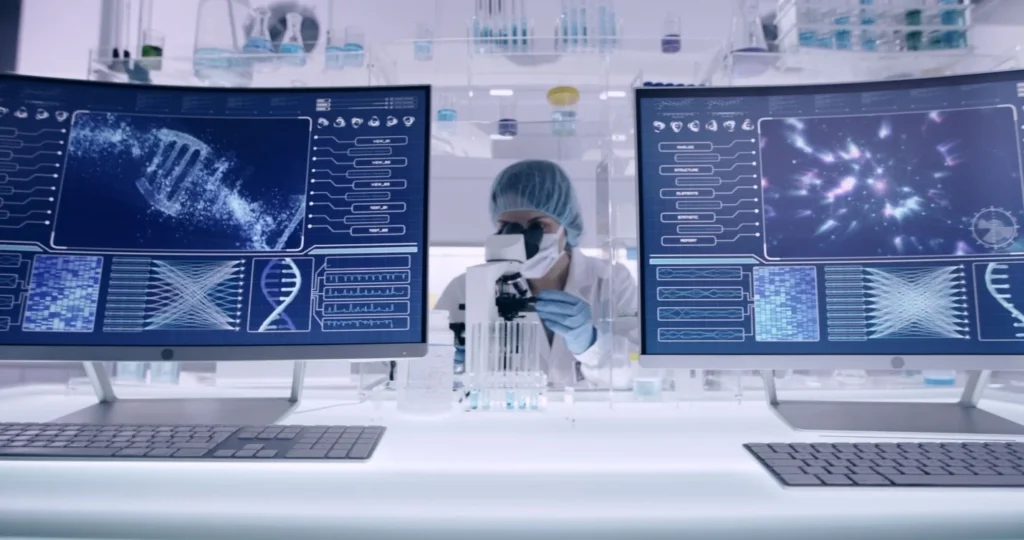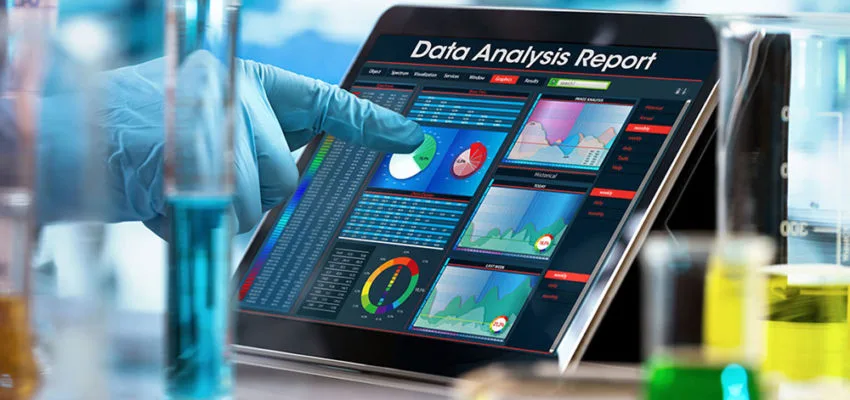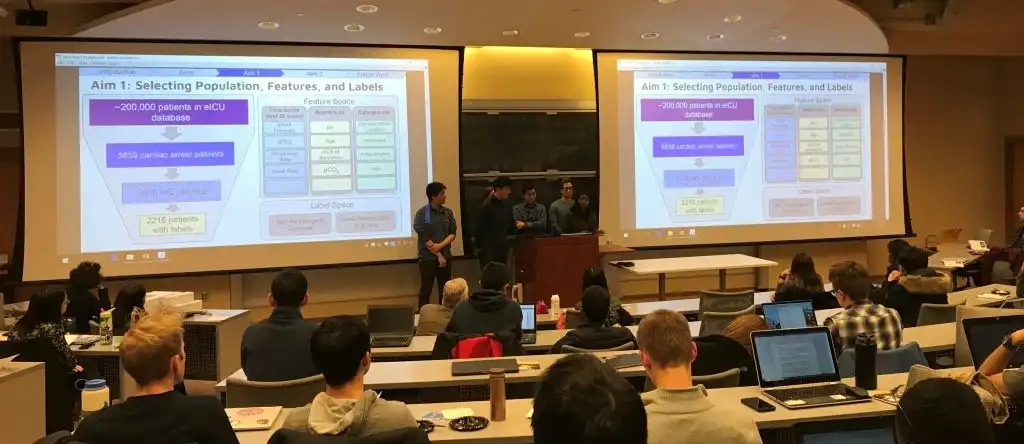Clinical Data Manager plays a crucial role in ensuring the integrity, accuracy, and confidentiality of clinical trial data. From overseeing data collection to ensuring regulatory compliance, their responsibilities are paramount in maintaining the quality and reliability of clinical research outcomes.
How to become a Clinical Data Manager?
If you’re intrigued by the intersection of healthcare and data management, becoming a Clinical Data Manager might be the career path for you.
There are two pathways to becoming a clinical data manager. The first involves enrolling in university programs or pursuing online certifications, which typically follow a structured and formal approach, albeit requiring financial resources. Alternatively, individuals with existing knowledge and seeking to augment specific skills for a career transition can opt for the second path, offering a more flexible and targeted learning experience.
Both paths are explained in detail in this article with resources. Let’s explore what it takes to embark on this rewarding journey.
Also learn about 9 Top USA Clinical Data Scientist Employers: Required Expertise and Expected Salaries.
What does Clinical Data Manager do?
Before delving into the specifics of becoming a clinical data manager, it’s essential to grasp the scope of their responsibilities. Clinical data managers are entrusted with the task of organizing, analyzing, and maintaining data collected during clinical trials. They work closely with healthcare professionals, researchers, and regulatory bodies to ensure that data is accurate, complete, and compliant with established protocols. Essentially, they serve as custodians of critical information that drives medical advancements and treatment innovations.

Technical Skills Essential for Clinical Data Managers
Proficiency in a range of technical skills is indispensable for ensuring the accuracy, integrity, and security of clinical trial data. From managing databases to utilizing specialized software, clinical data manager relies on their technical acumen to navigate the complexities of data collection, analysis, and reporting.
Let’s explore the key technical skills needed to excel in this role:
1. Database Management:
Clinical data managers must be adept at managing databases efficiently. This includes designing database structures, implementing data validation rules, and ensuring data integrity through rigorous quality control measures. Proficiency in database management systems (DBMS) such as Oracle Clinical, Medidata Rave, or IBM Clinical Development is highly beneficial.
2. Data Analysis Tools:
The ability to analyze and interpret clinical trial data is central to the role of a clinical data manager. Familiarity with statistical software packages such as SAS, R, or SPSS enables them to perform advanced data analytics, generate meaningful insights, and identify trends that inform decision-making processes.

3. Electronic Data Capture (EDC) Systems:
In today’s digital age, many clinical trials rely on Electronic Data Capture (EDC) systems to collect and manage data electronically. Clinical Data Managers should have hands-on experience with EDC platforms like Medidata Rave, OpenClinica, or Oracle Inform. This includes configuring study databases, designing electronic case report forms (eCRFs), and overseeing data entry processes.
4. Clinical Trial Management Systems (CTMS):
A sound understanding of Clinical Trial Management Systems (CTMS) is essential for efficiently tracking and managing all aspects of clinical trials, including study timelines, participant enrollment, and site monitoring activities. Proficiency in CTMS platforms like Oracle Siebel Clinical or Medidata CTMS streamlines project management tasks and enhances overall trial efficiency.
5. Regulatory Compliance:
Clinical data managers must ensure that all data management activities adhere to regulatory requirements and industry standards, such as Good Clinical Practice (GCP) guidelines and Health Insurance Portability and Accountability Act (HIPAA) regulations. Familiarity with regulatory compliance software and electronic document management systems (eDMS) facilitates documentation, audit trails, and regulatory submissions.
6. Data Security and Privacy:
Protecting the confidentiality and security of patient data is paramount in clinical data management. Clinical data managers should have knowledge of data encryption methods, access control mechanisms, and data anonymization techniques to safeguard sensitive information from unauthorized access or breaches.
7. Quality Assurance and Validation:
Implementing robust quality assurance (QA) and validation processes is essential to ensure the accuracy and reliability of clinical trial data. Clinical data managers should possess expertise in developing validation protocols, conducting data audits, and implementing corrective and preventive actions (CAPAs) to address discrepancies or errors in the data.
8. Technical Writing and Documentation:
Effective communication skills extend to technical writing and documentation in clinical data management. Clinical data managers should be proficient in drafting data management plans, standard operating procedures (SOPs), and study documentation that adhere to regulatory requirements and facilitate knowledge transfer within the organization.
Know more about 6 Top USA Medical AI Companies Revolutionizing Medicine.
Become a Clinical Data Manager: Academic Programs & Certifications
Academic Programs:
Many universities and institutes offer specialized degree programs and courses tailored to the field of clinical data management. Here are some notable institutions offering relevant academic programs:
- Harvard University: Harvard offers a Master of Science in Clinical Investigation program that provides comprehensive training in clinical research methods, including data management and analysis.
- Johns Hopkins University: The Johns Hopkins Bloomberg School of Public Health offers a Master of Science in Clinical Research program with a focus on clinical trial design, data management, and statistical analysis.
- Duke University: Duke’s Clinical Research Training Program offers courses in clinical data management, biostatistics, and regulatory affairs, preparing students for careers in clinical research.
- University of California, San Diego (UCSD): UCSD Extension offers a Clinical Trials Administration certificate program designed to equip students with the knowledge and skills needed for roles in clinical data management and trial coordination.

2. Professional Certifications:
Obtaining industry-recognized certifications can validate your expertise and enhance your credentials as a clinical data manager. Some prominent certifications in clinical data management include:
- Certified Clinical Data Manager (CCDM): Offered by the Society for Clinical Data Management (SCDM), the CCDM certification demonstrates proficiency in data management principles, practices, and regulatory requirements.
- Certified Clinical Data Manager-Advanced (CCDM-A): This advanced certification from SCDM is designed for experienced data managers seeking to demonstrate mastery of advanced data management concepts and techniques.
- Clinical Data Management (CDM) Certification: Various organizations and training providers offer CDM certification programs covering topics such as database management, data validation, and regulatory compliance.
Become a Clinical Data Manager: Acquiring Specific Skills
If you’re currently employed in the healthcare sector and aspire to transition into a clinical data manager role, or if you possess a strong background in data science and programming but seek to hone specific skills for this career path, the following guidelines are tailored to your needs.
Learning Sources for Database Management Skills:
- Online Platforms:
- Udemy: Udemy offers a wide range of courses on database management, including SQL, Oracle, and MySQL. Courses are often tailored to different skill levels, from beginner to advanced.
- Coursera: Coursera provides courses and specializations in database management systems from universities like Stanford and the University of Michigan. These courses cover topics such as relational databases, NoSQL databases, and data modeling.
- edX: edX offers courses on database management systems, database design, and SQL programming from institutions like Microsoft and IBM.
- Institutes and Universities:
- Stanford University: Stanford offers online courses through its Stanford Online platform, covering topics such as database systems, data mining, and big data analysis.
- Massachusetts Institute of Technology (MIT): MIT offers OpenCourseWare (OCW) resources, including lecture notes and assignments for courses like Introduction to Databases.
- University of California, Berkeley: UC Berkeley’s School of Information offers courses on data management and SQL programming through its online platform.
- Books and Resources:
- “Database Systems: The Complete Book” by Hector Garcia-Molina, Jeffrey D. Ullman, and Jennifer Widom is a comprehensive resource for understanding database systems and principles.
- “SQL Cookbook” by Anthony Molinaro provides practical solutions and tips for common SQL queries and challenges.
- Online tutorials and documentation from database vendors such as Oracle, Microsoft SQL Server, and MySQL offer valuable resources for learning specific database management tools.
Learning Sources for Data Analysis Tools Skills:
- Online Platforms:
- DataCamp: DataCamp offers interactive courses on data analysis tools like Python, R, and SQL. Courses cover data manipulation, visualization, and statistical analysis techniques.
- Codecademy: Codecademy provides interactive tutorials on Python and R programming languages, which are widely used for data analysis and statistical computing.
- Kaggle: Kaggle hosts datasets and competitions where users can practice their data analysis skills using tools like Python and R.
- Institutes and Universities:
- Harvard University: Harvard offers online courses in data science and statistical analysis through platforms like edX and Harvard Online Learning.
- Johns Hopkins University: Johns Hopkins offers the Data Science Specialization on Coursera, which covers topics such as data analysis with R and machine learning.
- Books and Resources:
- “Python for Data Analysis” by Wes McKinney provides a comprehensive guide to using Python for data manipulation, analysis, and visualization.
- “R for Data Science” by Hadley Wickham and Garrett Grolemund offers practical advice and examples for using R programming language in data analysis projects.
- Online documentation and tutorials for tools like pandas (Python), ggplot2 (R), and NumPy (Python) provide valuable resources for learning data analysis techniques.
Learning Sources for Electronic Data Capture (EDC) Systems Skills:
1. Vendor Documentation:
Many EDC system vendors offer online documentation, tutorials, and training resources for users to learn how to use their platforms effectively. Examples include Medidata Rave Help Center and Oracle Clinical documentation.
2. On-the-Job Training:
For professionals working in clinical research organizations or pharmaceutical companies, on-the-job training and mentorship from experienced colleagues can be invaluable for learning how to use EDC systems in a real-world setting.
3. Professional Organizations:
Organizations such as the Society for Clinical Data Management (SCDM) often host webinars, workshops, and conferences where professionals can learn about best practices and advancements in EDC systems and data management.
4. Institutes and Universities:
Some academic institutions offer courses or modules on EDC systems as part of their clinical research or health informatics programs. Examples include the University of Michigan’s School of Public Health and Duke University’s Clinical Research Training Program.
Future Prospects
In terms of future prospects, the demand for Clinical Data Managers is expected to remain strong, driven by the growing emphasis on evidence-based medicine, advancements in healthcare technology, and the expansion of clinical research activities. As the healthcare industry continues to evolve, there will be increasing opportunities for skilled professionals who can effectively manage and leverage clinical data to drive innovation and improve patient outcomes.
In conclusion, embarking on a career as a Clinical Data Manager offers a dynamic and fulfilling pathway for individuals passionate about healthcare and data management. By acquiring the requisite education, skills, and experience, you can position yourself for success in this rewarding field, contributing to the advancement of medical science and the improvement of global health outcomes.
Explore about Data Science vs Computer Science: Who Earns More in USA?



